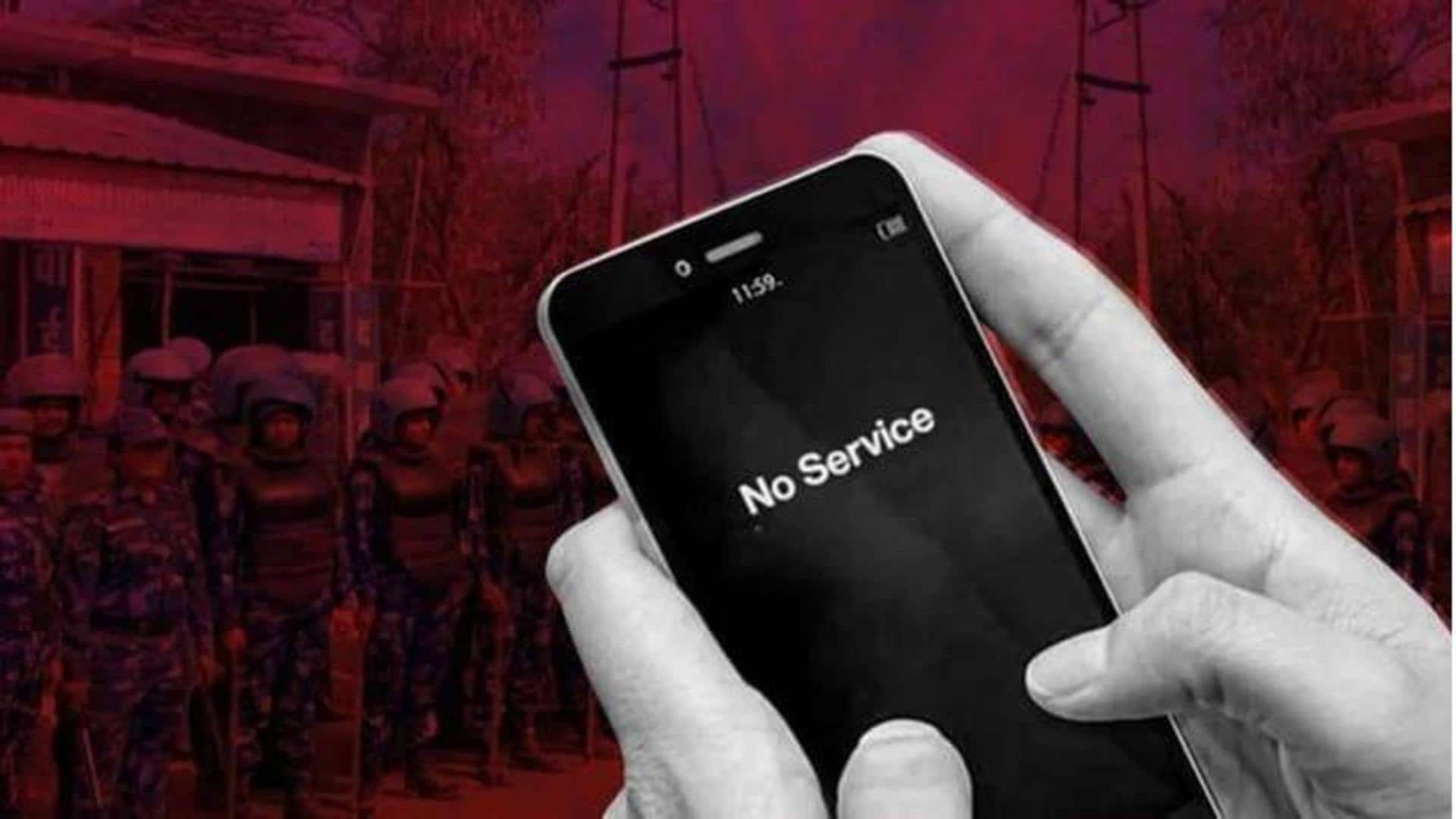
Manipur: Government partially lifts internet ban amid violence
What's the story
The Manipur government on Tuesday ordered the lifting of the ban on broadband internet services across the state in a "conditional" and "liberalized" manner. Although, the mobile internet and social media platforms will remain banned. Reportedly, mobile internet services were suspended on May 3 after ethnic clashes broke out between Meiteis and the state's tribal communities, while broadband services were banned the next day.
Order
Government acknowledges difficulties due to ban
In its order, Manipur's Home Department said the internet ban has impacted various essential sectors, including offices, healthcare facilities, refueling centers, electricity recharging, LPG booking, educational institutions, taxation offices, and other citizen-centric online services. It added internet connectivity will only be allowed through static internet protocol (IP) and "the subscriber concerned shall not accept any other connection other than allowed for the time being."
Details
More details about latest order
The notification also listed some terms and conditions, saying no Wi-Fi/hotspots will be allowed from "any of the routers and systems using the connection at any cost by the subscriber concerned." Also, local subscribers will be responsible for ensuring the blocking of social media websites and virtual private networks (VPNs) at their level as required.
Twitter Post
Check out government's full order
Manipur government orders earlier suspension of Broadband internet service be "lifted conditionally in a liberalised manner" pic.twitter.com/1FEfCCppQb
— ANI (@ANI) July 25, 2023
Violence
Over 160 killed in Manipur's ethnic violence
Over 160 people have reportedly been killed in Manipur's ethnic violence following a May 3 protest against the Meiteis' Scheduled Tribe (ST) status demand. Meiteis (53% of the population) claim they face difficulties due to large-scale Bangladeshi and Myanmarese illegal immigrants and restrictions on settling in the state's hilly areas. However, Nagas and Kukis (around 40% of the population) are concerned about their prospects.